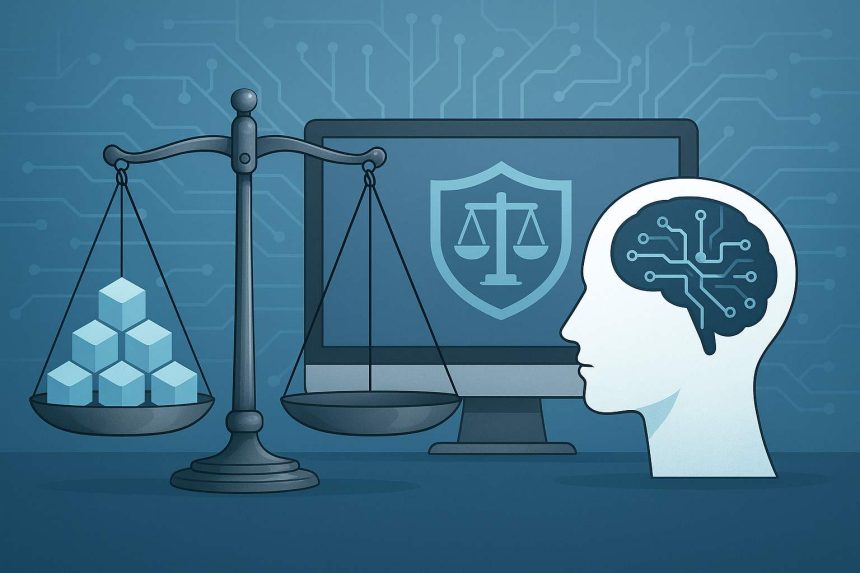The myth of neutrality
For decades, Silicon Valley has promoted the idea that technology is neutral — that algorithms simply process data objectively.
But the Cambridge Analytica revelations shattered that illusion.
It became clear that data-driven tools could be used to manipulate, discriminate, or deceive, depending on the intentions of their creators.
Technology does not exist in a vacuum. It’s shaped by cultural norms, political pressures, and corporate interests.
Behind every algorithm are human choices — what data to include, what to prioritize, and what to ignore.
Data ethics defined
Data ethics is the study of how information should be collected, analyzed, and used responsibly.
It goes beyond legal compliance to ask moral questions:
Who benefits from this technology?
Who might be harmed?
And how can we ensure fairness, accountability, and transparency in digital systems?
Ethical data practices aim to balance innovation with respect for human dignity — ensuring that progress doesn’t come at the cost of privacy or social justice.
The lessons from Cambridge Analytica
Cambridge Analytica’s downfall wasn’t just about a data breach; it was about ethical failure.
The company used psychological insights and illegally obtained data to manipulate voters without their consent.
The scandal revealed how easily data could be weaponized when ethics take a backseat to profit or power.
It also exposed the fragility of trust in digital systems.
Once users feel exploited, rebuilding confidence becomes nearly impossible — a lesson still haunting social media platforms today.
The ethical dilemmas of AI
Artificial intelligence magnifies the ethical questions first raised by Cambridge Analytica.
When machines make decisions based on data, they inherit the biases embedded in that data.
If a dataset reflects social inequality, the algorithm will likely reproduce it.
From hiring algorithms that discriminate by gender to predictive policing tools that target marginalized groups, examples of algorithmic bias are everywhere.
The challenge isn’t just technical — it’s moral.
Who owns your data?
One of the central ethical questions of the digital age is ownership.
When you post on social media or use an app, who owns that information — you or the company?
In most cases, the answer favors corporations.
Terms of service agreements often grant them broad rights to use, sell, or analyze user data.
The data-as-property debate continues to grow.
Some experts argue that individuals should receive compensation for their data, much like intellectual property.
Others believe privacy should remain a fundamental right, not a tradable asset.
Transparency and accountability
Ethics begins with transparency.
Users should know how their data is collected, how algorithms make decisions, and who profits from them.
Yet, most digital systems remain black boxes — opaque by design.
Governments are slowly introducing regulations like the GDPR and the AI Act in Europe, requiring companies to explain their data practices.
But regulation alone isn’t enough; ethical culture must come from within organizations.
Ethics versus innovation
Some argue that strict ethical guidelines stifle innovation.
But history shows the opposite: trust and accountability drive sustainable progress.
Just as environmental ethics pushed companies toward green technologies, data ethics can lead to better, fairer digital solutions.
Ethical design encourages creativity — finding ways to innovate without exploitation.
It’s not about slowing progress; it’s about giving it direction.
The role of corporations
Tech companies are at the center of the ethical debate.
Their platforms shape global communication, yet their governance often prioritizes shareholder profit over public interest.
Building ethics into these systems requires institutional change.
Some companies have established AI ethics boards or transparency reports, but critics argue these measures are often symbolic.
True ethical reform demands external oversight, whistleblower protection, and meaningful accountability.
Can data ever be “good”?
Despite its risks, data also has enormous potential for good.
Ethical data collection can advance medicine, improve disaster response, and reduce inequality.
For example, open data initiatives have helped scientists track pandemics, monitor climate change, and develop more equitable policies.
The difference lies in intent, consent, and transparency.
When people understand how and why their data is used, trust follows — and so does social progress.
The future of ethical technology
The future depends on redefining the relationship between humans and machines.
Ethics must be integrated into every stage of technology development — from design and testing to deployment and governance.
Universities now offer degrees in AI ethics and digital governance.
Policymakers are drafting global frameworks for responsible innovation.
Civil society movements advocate for digital human rights and algorithmic transparency.
Takeaway: The Cambridge Analytica scandal taught us that technology is never neutral — it reflects the values of those who build and control it.
True innovation must be guided by ethics, empathy, and accountability.
The question is no longer whether we can make smarter machines, but whether we can make wiser ones.







